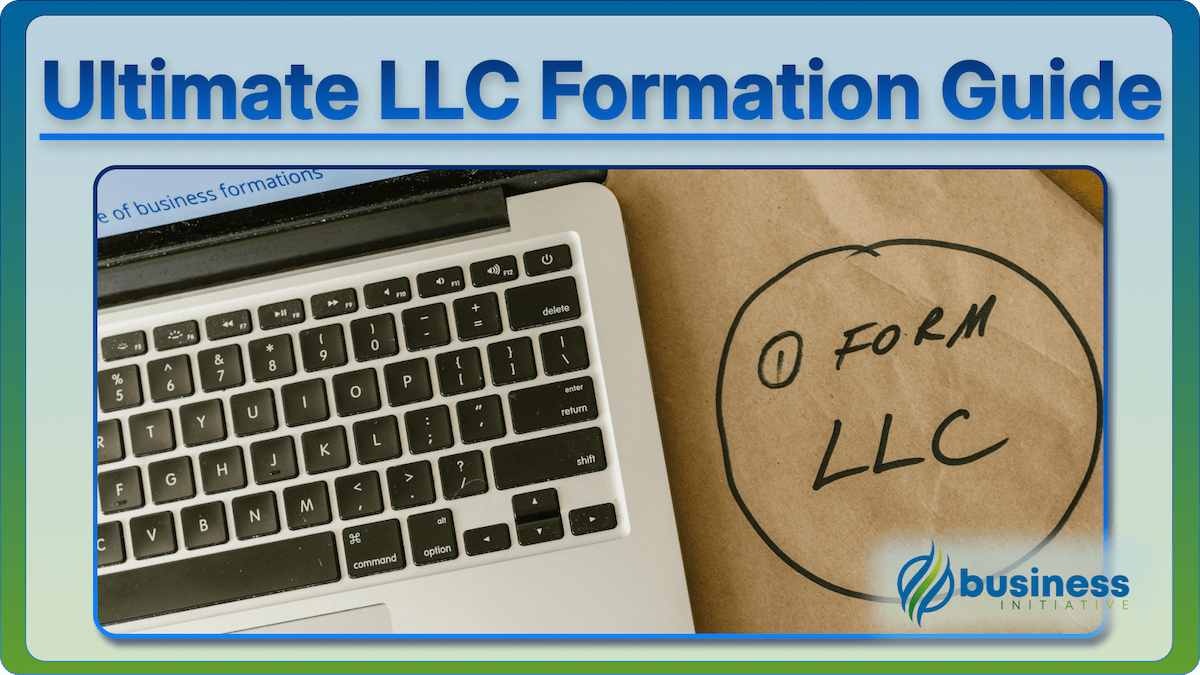You form your LLC.
You use your home address as the registered agent address.
Your address is now public record.
Anyone can find it. Process servers. Competitors. Scammers. Unwanted visitors.
This is real. It happens every day.
Your home address appears in state business records. It’s searchable online. It’s accessible to anyone who looks.
You can fix this.
This guide explains what public records mean. The real risks. How to protect your privacy. Step-by-step solutions.
Read this. Understand the exposure. Protect yourself.

 Key Takeaways
Key Takeaways
- When you use your home address as a registered agent, it becomes public record—anyone can search and find your personal address online
- Public records expose you to process servers, unwanted visitors, competitors researching you, and potential security risks
- Professional registered agent service keeps your home address private by using their business address on public records instead
- You can change your registered agent at any time to protect your privacy, even after your business is already formed
- The cost of professional registered agent service ($125/year) is minimal compared to the privacy and security risks of exposure
 Table of Contents
Table of Contents

What Is Public Record?
Public record means information that’s available to anyone who looks for it.
When you form your business:
- Your formation documents are filed with the state
- These documents become public records
- Anyone can search and view them
- Your registered agent address is included
What this means:
- Your address is searchable online
- State databases are accessible to the public
- Business directories list your information
- Data brokers collect and sell this information
The result: Your home address is no longer private. It’s accessible to anyone.
What Gets Exposed
When you use your home address as a registered agent, here’s what becomes public:
Your Physical Address
What’s exposed:
- Your complete street address
- City, state, and ZIP code
- This address appears on all public records
Where it appears:
- State business entity databases
- Online business directories
- Secretary of State websites
- Third-party business data sites
Your Name
What’s exposed:
- Your full legal name
- Your name as registered agent
- Your name as organizer/incorporator
Where it appears:
- Public business records
- Online searches
- Business directories
Your Business Information
What’s exposed:
- Business name
- Formation date
- Business structure (LLC, Corporation, etc.)
- Registered agent information
Where it appears:
- All public business databases
- Searchable online records
Pro tip: Once information is in public records, it’s difficult to remove. Even if you change your registered agent later, old records may still exist online.

Real Risks of Exposure
Exposing your home address creates real risks:
Process Servers
What happens: Process servers know exactly where to find you. They can serve legal documents at your home.
The risk:
- Lawsuits served at your home
- Subpoenas delivered in front of family
- Legal documents left at your door
- Embarrassment and stress
Real example: A business owner was served with a lawsuit at home during a family dinner. The process server knocked on the door and handed papers to his children.
Unwanted Visitors
What happens: Anyone can find your address and show up unannounced.
The risk:
- Competitors researching you
- Angry customers or clients
- Scammers and solicitors
- Unwanted salespeople
Real example: A business owner received multiple visits from competitors who found his address in public records and wanted to “discuss business opportunities.”
Security Concerns
What happens: Your address is available to anyone with internet access.
The risk:
- Stalking or harassment
- Identity theft attempts
- Physical security risks
- Family safety concerns
Real example: A business owner’s address was used by scammers who sent fake invoices and threats to his home address.
Professional Image
What happens: Using a home address can make your business look unprofessional.
The risk:
- Clients see your home address
- Investors question your professionalism
- Business partners see informal setup
- Reduced credibility
Real example: A potential client looked up a business owner’s address and decided not to work with them because they “worked out of their house.”
Pro tip: These risks are real and common. Professional registered agent service eliminates them by keeping your address private.
How People Find Your Address
It’s easier than you think to find your address:
State Business Databases
How it works:
- Every state maintains searchable business databases
- These are free and accessible online
- Anyone can search by business name or owner name
- Results show registered agent address
Example: Search “Your Business Name LLC” on your state’s Secretary of State website. Your address appears immediately.
Online Business Directories
How it works:
- Third-party sites scrape state databases
- They create searchable business directories
- Your information appears on multiple sites
- These sites are often free to search
Example: Sites like business directories, data brokers, and business information services all list your address.
Data Brokers
How it works:
- Data brokers collect public record information
- They compile comprehensive profiles
- They sell this information to anyone
- Your address is part of these profiles
Example: Data brokers create detailed profiles including your business address, which they sell to marketers, researchers, and anyone willing to pay.
Social Media and Search Engines
How it works:
- Search engines index public records
- Social media sites link to business information
- Your address appears in search results
- It’s connected to your name and business
Example: Google your business name. Your address may appear in search results, business listings, and directory sites.
Pro tip: Once your address is public, it spreads quickly. It’s difficult to remove from all these sources. Prevention is better than trying to remove it later.
How to Protect Your Privacy
You can protect your privacy. Here’s how:
Option 1: Professional Registered Agent Service (Recommended)
What it is: A professional service that acts as your registered agent using their business address.
Benefits:
- Your home address stays private
- Professional business address on public records
- Compliance tracking and reminders
- Multi-state support if you expand
Cost: $50-$300 per year (typically $125/year)
How it works:
- Service provides their business address
- They receive all legal documents
- They forward documents to you
- Your home address never appears in public records
Pro tip: Professional registered agent service is the easiest and most effective privacy solution. See our registered agent guide for details.
Option 2: Business Address Service
What it is: A virtual business address service that provides a professional address.
Benefits:
- Professional business address
- Mail forwarding services
- Some privacy protection
Cost: $20-$100+ per month
Limitations:
- May not meet registered agent requirements (must be physical address, available during business hours)
- Doesn’t handle legal documents
- Still need registered agent service
Pro tip: Business address services are different from registered agent services. You may need both.
Option 3: Commercial Office Address
What it is: Using a commercial office or coworking space address.
Benefits:
- Professional address
- Physical location for business
- Some privacy protection
Cost: $100-$500+ per month
Limitations:
- Expensive for small businesses
- May not be available during all business hours
- Still need to ensure registered agent requirements are met
Pro tip: Commercial offices work, but they’re expensive. Professional registered agent service is more cost-effective for privacy protection.

How to Change Your Registered Agent
If you’re already using your home address, you can change it:
Step 1: Choose Your New Registered Agent
Options:
- Professional registered agent service (recommended)
- Commercial office address
- Another business address
Pro tip: Professional registered agent service provides the best combination of privacy, reliability, and compliance support.
Step 2: File Change of Registered Agent Form
What to do:
- Get the form from your state’s Secretary of State website
- Fill out the change of registered agent form
- Include new registered agent information
- Pay the filing fee (typically $25-$100)
Resources:
Step 3: Notify Your Old Registered Agent
What to do:
- If you were your own agent, no notification needed
- If you used a service, they’ll handle the transition
- Update any business records with new address
Step 4: Update Business Information
What to do:
- Update your business website
- Update marketing materials
- Update client contracts
- Update any public-facing information
Pro tip: Changing your registered agent is straightforward. The filing fee is minimal compared to the privacy protection you gain.
Privacy Best Practices
Here are best practices to protect your privacy:
Use Professional Registered Agent Service
Why: It’s the easiest and most effective way to protect your privacy.
Action: Get professional registered agent service from day one. See our registered agent guide for details.
Don’t Use Home Address for Business
Why: Home addresses on public records create privacy and security risks.
Action: Use professional registered agent service or commercial address for all business filings.
Limit Public Information
Why: The less information in public records, the better.
Action:
- Use registered agent service for privacy
- Don’t include unnecessary personal information in filings
- Keep business and personal addresses separate
Monitor Your Online Presence
Why: Your information may appear in multiple places online.
Action:
- Periodically search for your business name
- Check what information is publicly available
- Request removal from data broker sites if possible
Update Privacy Settings
Why: Some business directories allow you to limit information display.
Action:
- Check privacy settings on business directory sites
- Limit information display where possible
- Use privacy-focused business services
Pro tip: Professional registered agent service handles most privacy concerns automatically. It’s the simplest solution.
Your Next Steps
Don’t let your home address become public record. Protect your privacy now.
This Week:
- Check if your address is currently public (search your business name on your state’s website)
- Research professional registered agent services
- Decide on your privacy protection strategy
This Month:
- Change your registered agent if needed
- File the change of registered agent form
- Update all business information with new address
- Monitor your online presence
Going Forward:
- Use professional registered agent service for all new formations
- Keep business and personal addresses separate
- Monitor your privacy regularly
- Update privacy settings as needed
Need help? Check out our registered agent guide for professional service options, our state-by-state checklist for filing requirements, and our formation guide for complete formation information.
Stay informed about business strategies and tools by following us on X (Twitter) and signing up for The Initiative Newsletter.
FAQs - Frequently Asked Questions About Home Address on Public Record: What It Really Means and How to Fix It

What happens to my home address when I use it as my registered agent address for an LLC?
Your home address becomes public record, searchable online by anyone through state business databases, online directories, and data broker sites.
Learn More...
When you form your LLC and list your home address as the registered agent address, that information is filed with the state and becomes part of the public record.
Your complete street address, full legal name, business name, and formation details all appear on Secretary of State websites, third-party business data sites, and online business directories.
Data brokers also collect this information and sell it, making your personal address even more widely available and very difficult to remove once it's out there.
What are the real risks of having my home address exposed in public business records?
Risks include process servers showing up at your door, unwanted visitors, security threats like stalking or identity theft, and damage to your professional image.
Learn More...
Process servers can serve lawsuits and subpoenas directly at your home, sometimes in front of family members, causing embarrassment and stress.
Competitors, angry customers, scammers, and solicitors can all find your address and show up unannounced, creating safety concerns for you and your family.
Using a home address also hurts your professional credibility since potential clients or investors may see a residential address and question how serious your business is.
How does a professional registered agent service protect my home address from public records?
The service uses their business address on all public filings instead of yours, so your home address never appears in state records.
Learn More...
A professional registered agent service provides their own business address to appear on your formation documents, state filings, and public databases.
They receive all legal documents like service of process and compliance notices at their address and forward them to you, keeping your home address completely out of public view.
Most services cost around $125 per year and also include compliance tracking, deadline reminders, and multi-state support if you expand.
Can I change my registered agent to remove my home address from public records after my business is already formed?
Yes, you can change your registered agent at any time by filing a change of registered agent form with your state's Secretary of State.
Learn More...
The process involves choosing a new registered agent (such as a professional service), completing the state's change of registered agent form, and paying a filing fee that typically ranges from $25 to $100.
However, old records with your original home address may still exist online even after the change, so it is better to use a professional service from day one to prevent exposure in the first place.
After the change, you should also update your business website, marketing materials, and client contracts to reflect the new address.
How do people find my home address through public business records?
They can search free state business databases, online directories, data broker sites, and even Google your business name to find your registered agent address.
Learn More...
Every state maintains a searchable business entity database that is free and accessible online. Anyone can search by business name or owner name and see your registered agent address immediately.
Third-party sites scrape these state databases to create their own business directories, and data brokers compile comprehensive profiles that include your address and sell them to marketers, researchers, or anyone willing to pay.
Once your address is public, it spreads quickly across multiple platforms and search engine results, making it extremely difficult to fully remove.
What privacy best practices should founders follow when forming a business?
Use professional registered agent service from day one, never use your home address for business filings, and regularly monitor your online presence.
Learn More...
The most important step is getting professional registered agent service before you file your formation documents. This prevents your home address from ever entering public records.
Keep business and personal addresses completely separate, limit unnecessary personal information in filings, and periodically search for your business name to check what information is publicly available.
You should also request removal from data broker sites when possible, check privacy settings on business directory listings, and use privacy-focused business services for all your operations.
Sources & Additional Information
This guide explains general privacy principles related to public business records. Specific requirements and protections vary by state.
For information about registered agent services and privacy protection, see our Registered Agent Service page.
For state-specific requirements, see our State-by-State Checklist.
For Secretary of State contact information, see our Secretary of State Directory.


